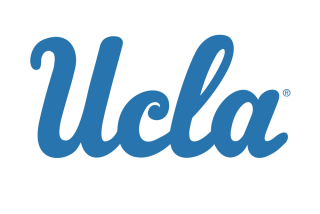NCAA acted tough, but by comparison Penn State got off easy
- Share via
Let’s be clear: The NCAA, as expected, dropped a Monday-morning hammer on Penn State’s football program.
NCAA President Mark Emmert was given extraordinary power to use Wild West justice in the most heinous of circumstances.
Emmert correctly called the child-abuse case that led to former assistant coach Jerry Sandusky’s conviction “an unprecedented, painful chapter in the history of college athletics.”
Penn State’s football program, as I wrote in November after the scandal broke, is doomed for a decade.
The student chant could now be “We WERE Penn State.”
The litany of penalties Czar Emmert issued against Penn State includes a $60 million fine, five years’ probation, a four-year bowl ban and the loss of some scholarships. Recruits and players committed to the program will be able to walk away without penalty.
Penn State will be forced to vacate all football wins since 1998, which effectively undercuts what was the legacy of former coach Joe Paterno.
It all sounds harsh, punitive and corrective.
Emmert swore this was not a “Pandora’s box” in which the NCAA would now have to routinely intervene in criminal cases in which it’s possible no actual NCAA rules were violated.
Yet, the NCAA set itself up for years to come because it allowed the Penn State case to be compared — which should have never happened.
Nothing will ever compare to what Sandusky did at Penn State.
You could seriously argue, and lawyers certainly will, that the NCAA had no jurisdiction in this case and should have stayed out and let Penn State football die under its own crushing and criminal weight.
If the NCAA was going to get involved, well, should it have not used its entire arsenal of options?
In fact, the NCAA spared Penn State, the worst offender of all time, of the most crushing penalties.
It did not invoke the so-called “death penalty” and close the football program down for at least a year.
It also did not ban Penn State from television appearances. Maybe the Big Ten will step in and take care of that?
You might ask: How could the most egregious acts in collegiate history not lead to the most egregious penalties?
Emmert said the suspension of the football program would “bring significant unintended harm to many who had nothing to do with this case.”
Yeah … so what?
The problem is the NCAA already set the precedent for that.
In 1987, it banned Southern Methodist University for one season for violations that pale in comparison with what happened at Penn State.
SMU players took money from boosters, giving us the classic take-away phrase, “We had a payroll to meet.”
By not going far enough, Emmert allowed the Penn State sanctions to be compared with day-to-day NCAA skulduggery.
People at USC as you read this are probably thinking: “So what Penn State did was more than twice as bad as Reggie Bush’s parents living rent free in a condo?”
USC is in the midst of NCAA probation that included a two-year bowl ban and loss of 30 scholarships. Penn State will be banned four years and lose 10 scholarships for the next four years.
There is no comparing the cases, yet, people can now do it.
By not giving Penn State the death penalty, Emmert may have compromised every future case that comes before the NCAA’s Committee on Infractions.
Emmert did take bold action. He also waived due process. He did open Pandora’s Box.
Emmert felt he had to do something. There was incredible public pressure on the NCAA to act fast.
Had this been a normal case, with normal violation parameters, the penalties issued against Penn State would have risen to their proper height.
But this wasn’t a normal case. If the NCAA was going to get involved—and that’s a big “if” -- it should have blasted Penn State with everything it had in its jurisdictional arsenal.
Emmert talked tough, and the NCAA hit hard.
This case, though, was unprecedented. The NCAA’s edict should have left no one today comparing it with a running back’s parents getting free rent.
The NCAA, once again, reached high — and fell short.
RELATED:
Penn State says it accepts penalties, move forward
NCAA fines Penn State $60 million, adds harsh penalties
Penn State sanctions: Too light, too heavy or just right? [Poll]
More to Read
Go beyond the scoreboard
Get the latest on L.A.'s teams in the daily Sports Report newsletter.
You may occasionally receive promotional content from the Los Angeles Times.











